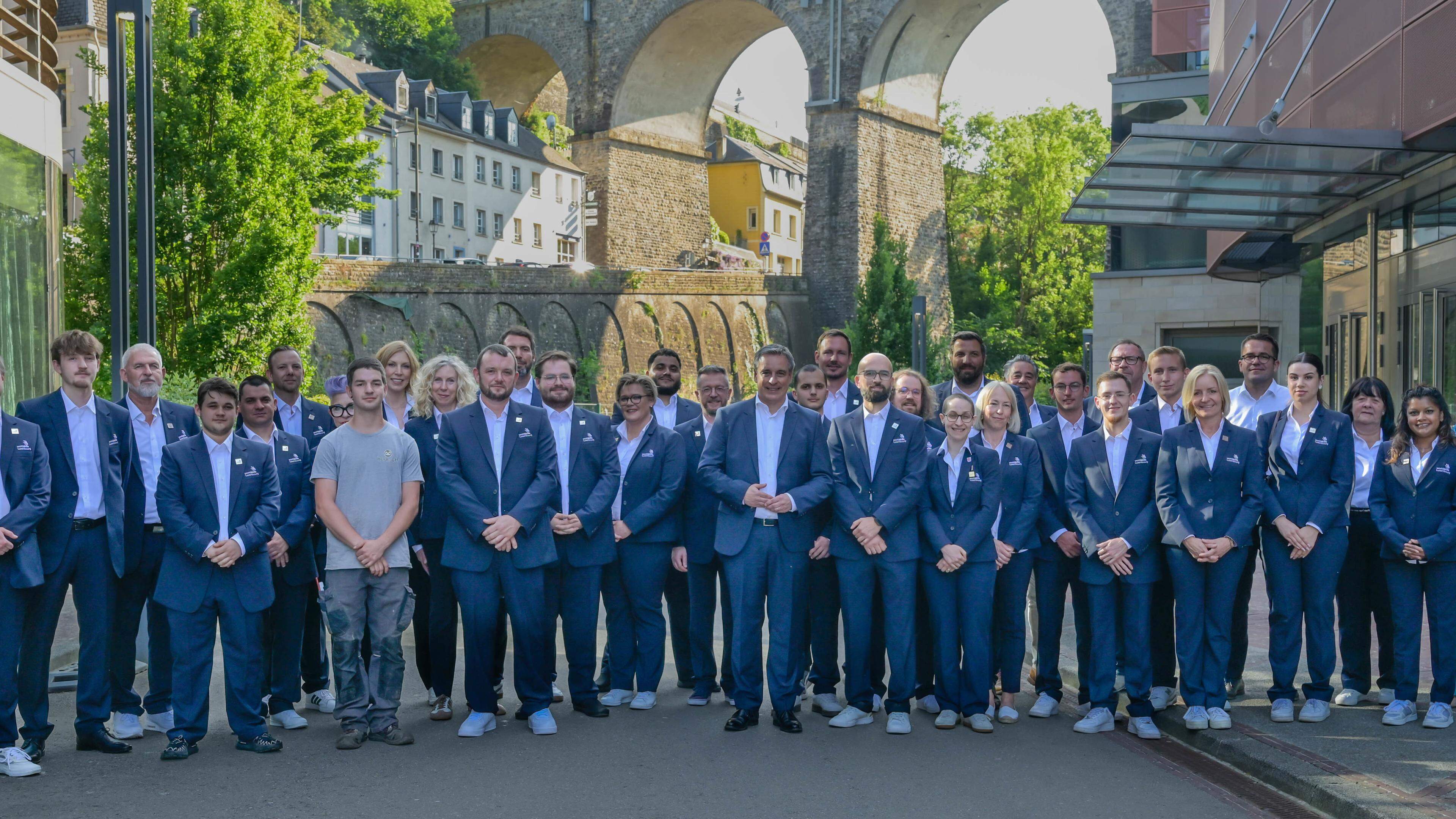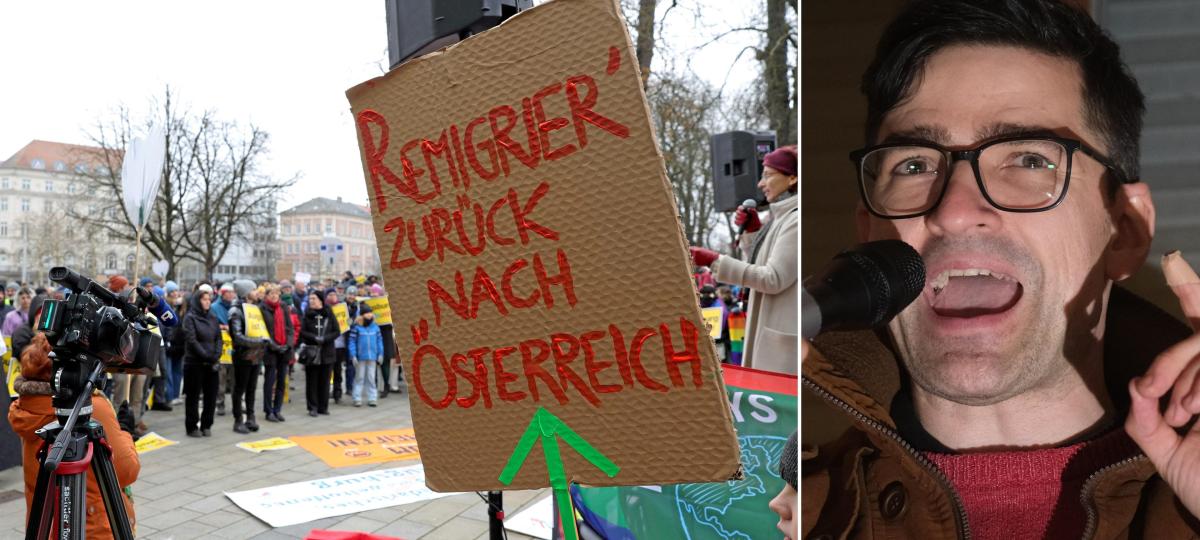Administrative court dismisses lawsuits against betting ban

The administrative court dismissed two lawsuits against the ban on begging in Luxembourg city as inadmissible. In both procedures, the judges came to the conclusion that the plaintiffs could not present a legally recognized interest in order to be entitled to the lawsuit at all. The judgments that are available to the « Luxembourg word » follow the same principle: Anyone who wants to contest a state decision must demonstrate a concrete and assignable own interest.
Both men had explained without being a permanent residence and only living from the begging. In their opinion, the ban, which applies during the day in parts of the city, take the only way to survive. But the court did not see sufficient evidence of this claim in any of the two cases.
Residence status decisive
In the first judgment, the court accuses the plaintiff, among other things, that he has not provided any evidence that he actually rely on begging. He also did not show that he had been specifically affected by the ban or was violated by the measure. In addition, the man, a German citizen, has lived without income in Luxembourg for over a year. According to the judges, he violates the rules of EU residence law, according to which citizens must have sufficient means without employment in order not to become a social burden.
Default: disproportionate, imprecise – questionable for fundamental rights
In addition, the plaintiff contested only the ministerial decision of December 11, 2023 – but not the actual police regulations of the City of Luxembourg from March 2023, through which the questionable regulations for the begging were only entered into force. Even if the ministerial decision were lifted, this would have no influence on the legal validity of municipal regulations, the judges said. A discussion of the arguments of the opposite side was largely missing.
The plaintiff has registration address
In the second procedure, too, the court criticizes the lack of resilient evidence of existential dependence on the begging. The plaintiff described a precarious life situation – he lives homeless, neither has social security nor income, and is regularly held from begging by the police. But here too, any evidence, such as social institutions or street workers who could have undergone his statements, would.
Mayor are not police officers or judges
In the second case, the judges particularly emphasized that, according to court files, the plaintiff had an official registration address in a residential building in Luxembourg. From this, the judges derived that he basically opened access to social benefits – for example to Revenu d’Inclusion Sociale (Revis) or for municipal social assistance.
In both procedures, the state had also indicated as a defendant that the plaintiffs could act as straw men for the government’s political opponents. The court did not go into more detail on this allegation. According to the judgments, it was crucial for the rejection of the complaints that the plaintiffs had not presented an individual, current and legally worth protecting interest.
Lawyer refers to human rights
For Frank Rollinger, the lawyer of the two plaintiffs, the reason for the administrative court falls short. It is legitimate to check the legal interest, in this case the court came to a wrong conclusion: « I think we had this interest very well. »
Rollinger is particularly critical of dealing with the judgment of the European Human Rights Court Lăcătuş against Switzerland. The Luxembourg court quotes the judge Georges Ravarani from the Grand Duchy, but, according to Rollinger, leaves the crucial connection: « They use a sentence that does not stand for what Ravarani really wrote. »
Ravarani has emphasized that even begging is a form of communication – and thus falls under Article 10 of the European Convention on Human Rights (ECHR) that protects freedom of expression. Rollinger believes that the court ignores this aspect as legally: « Article 10 gives you this right – regardless of whether Article 8 applies or not. »
Article 8 of the ECHR protects the right to private life and self -determination and was in the case Lăcătuilar The basis for the majority decision: everyone can decide on their own lifestyle. But for Rollinger it is clear: Even without a personal emergency or concrete interventions in the right of self -determination, the court must check whether a public ban on bed is not violated freedom of expression.
The lawyer also rejects the accusation that he did not react to the arguments of the opposite side. In his view, such proof was not necessary: »Because Article 10 guarantees this right anyway. » Rollinger therefore sees a fundamental question unclear: whether the ban on the begging is compatible with human rights. This clarification should not be postponed to a later criminal proceedings: « I think this question should now be answered – and not at some point from a criminal court that has to clarify whether the regulation was legal at all. »
Politically, it has always been argued that the judiciary would deal with the topic. « This is exactly what has not happened now, » said Rollinger. The legal fundamental questions about the relationship between public order and poverty in public space remained unclear.
ECHR-Richter 2021: begging can be freedom of expression
In the judgment Lăcătuş against Switzerland the European Court of Human Rights (ECHR) recognized in 2021 that a blanket ban can violate human rights. The majority referred to Article 8 (self -determination and private life). The judge Georges Ravarani, who comes from Luxembourg, went even further in his deviating opinion: For him, a form of communication – a « quiet call » – is therefore under the freedom of expression (Article 10 ECHR).
His argument: whether a begging person is actually in need or what intent is behind it does not matter. The extension of the hand alone is a social expression that must be legally protected. Even if the court did not follow this view, Ravarani’s position remains relevant – for example for future lawsuits that rely directly on freedom of expression. Article 10 has not yet been checked in the Luxembourg procedure. Both complaints already failed because the plaintiffs could not adequately prove their personal interest.







